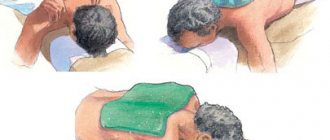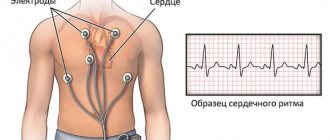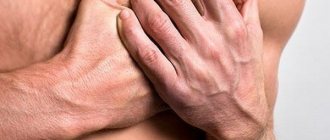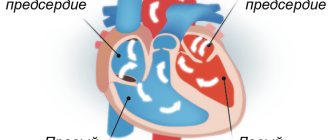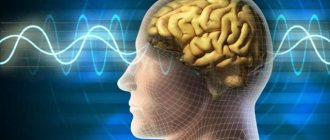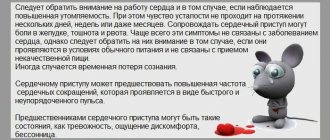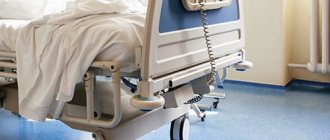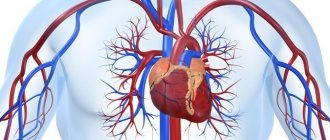Causes of pain
Differences in blood pressure affect the entire body, so the symptoms of heart pain may vary. With low blood pressure, pain in the cardiac region is paroxysmal. They appear in the morning. The pain does not extend to the left arm, shoulder or jaw.
Important! With high blood pressure, the pain is pressing and aching.
It is difficult to determine the duration of pain in the left side of the chest, since it appears and disappears throughout the day. Often appears after physical exertion or stress. If pain in the heart increasingly makes itself felt at night and during periods of calm, then consult a doctor immediately. With increased pressure, pain in the left side of the sternum is a signal of an attack of angina, myocardial infarction, coronary spasm, etc.
If the pressure is within normal limits, but the heart pain does not go away, then the cause of its occurrence may be:
- overwork;
- stress factor;
- state of depression;
- vegetative-vascular dystonia;
- sudden change in weather conditions or climate;
- prolonged insomnia;
- lack of vitamins in the diet;
- bad habits.
This list lists the main reasons for the manifestation of the condition when the pressure is normal, but the heart hurts. A cardiologist can name the exact cause. If during the examination no serious organic or functional changes in the organ are detected, then minimal therapeutic treatment is prescribed. They recommend eating right, getting plenty of rest, and monitoring your vitamin intake.
Healthy lifestyle
When high blood pressure is detected in combination with heart pain, more serious treatment is prescribed, but it all depends on the diagnostic result.
First aid for heart pain
If there is an acute, aching, squeezing pain in the heart area, you must:
- try to calm down;
- provide access to fresh air;
- release the top buttons and loosen the clothes;
- lie down to rest.
If the pain does not subside, we may be talking about an attack. Call an ambulance, and after the team arrives, indicate in detail all the symptoms and report on the actions that were performed before the attack.
Can blood pressure cause pain in the cardiac region?
The answer to this question is clearly positive, because blood pressure affects the volume of cardiac output, blood circulation and the tone of the vascular walls. Cardiac output is the amount of blood that the heart throws out during one contraction.
Blood pressure measurement
When blood pressure decreases, the patient may experience:
- severe and severe weakness;
- fatigue;
- noise in ears;
- shortness of breath;
- headache;
- pain in the heart, similar to a sharp compression of the organ or squeezing in the left region of the sternum.
With increased pressure, the pain may radiate to the left side. There is a feeling that the pain covers the entire chest.
Pain behind the sternum and in the cardiac region is not characterized by spreading to the left arm, shoulder or scapula. Taking nitroglycerin for hypotonic pain does not improve the condition and can increase the intensity of pain in the heart and head. In this condition, there is no guarantee that a person will not become a victim of an attack of angina or myocardial infarction. It is especially worth paying attention to the nature of the pain. It can be stinging. In this condition, you must immediately call an ambulance and take a nitroglycerin tablet under the tongue.
Increased heart rate
Conditions where the pulse is constantly high without a proper reason should puzzle people. When the pulse rises on its own in a calm state, it puts a strong strain on the heart. The norm for a healthy person is 60-90 beats, when the readings are higher, this is a sign of disturbances in the functioning of the body. You need to regularly monitor your pulse rate and, if it is very inconsistent, consult a doctor.
It is believed that heart contractions over 90 per minute are a manifestation of tachycardia.
Why is my heart rate constantly elevated?
If the heart rate is constantly elevated and does not decrease, this is a clear sign of the onset of the disease. This phenomenon requires treatment. With a high pulse, a person experiences shortness of breath and darkening of the eyes, hands shake, and a headache begins. When your heart rate is constantly elevated, your risk of having a heart attack or stroke increases. Because of this phenomenon, a state of shock often develops due to inconsistent heart function. The sources of this condition are:
- heart and vascular diseases;
- oncology;
- various infections;
- thyroid diseases;
- constant use of medications.
Return to contents
Other causes of increased heart rate
When a person has a high pulse in the morning or it periodically increases at his usual pressure, this indicates that the body cannot cope with periodically occurring loads. When the load passes, heart contractions return to normal. This phenomenon is not dangerous, but you will have to monitor your health, as the risk of overstraining the body increases. The heart rate increases when a person is in the heat for a long time. Elderly people are more likely to have an elevated heart rate than younger people. For all people, blood pulsation rises in the evening. Sources of increased heart rate are:
- stimulants (tobacco, alcohol, coffee, tea);
- weather factors (cold, heat);
- emotional states (stress, fear, fatigue);
- external influences (physical activity, time of day).
Return to contents
Why is it dangerous?
If the pulse is 150 or higher, you need to call an ambulance to prevent a stroke.
A very high pulse is dangerous because it leads to serious complications. When it is enlarged, the patient experiences a clear and audible heartbeat, pain in the sternum and heart, general weakness and malaise. This leads to heart failure and strokes. When the tonometer data fluctuates from 150 beats per minute to 180 beats per minute, quickly call an ambulance, but in the meantime, provide first aid to the patient and leave him alone, let him rest, open the window.
Return to contents
How does the problem manifest itself?
If the rate of heart contractions becomes higher against the background of external stimuli, there are no sudden manifestations. The person’s sensations do not change, and after the stimulus passes, the heart rate returns to normal. If the increase is due to pathological abnormalities in the body, then this will manifest itself depending on the type of disease.
CauseHow it manifests itself
| Tachycardia | A rapid pulse appears for no reason, unpredictably, accompanied by dizziness and shortness of breath. |
| Deviations in the functioning of the thyroid gland | The pulse is high and at rest, the hair becomes silky, the epidermis becomes smooth, sweating and nervousness begin. |
| Hypertension | Along with a high pulse, high blood pressure is also observed, and pulsation is felt in the limbs and ears. |
Return to contents
Rapid heartbeat with normal blood pressure readings
Sources of increase
A person's rapid pulse at normal blood pressure provokes tachycardia. If the pulse has increased in the morning, this is a sign of the onset of heart disease. Tachycardia appears briefly against the background of increased physical activity, stress, eating excessive amounts of fatty and salty foods, excess caffeine, lack of sleep and fasting. Constant tachycardia is accompanied by a lack of vitamins, respiratory distress, poisoning, heart and vascular diseases, nervous ailments and abnormalities in the functioning of the endocrine gland.
Return to contents
Treatment for tachycardia
At the first symptoms of the disease, it is better to undergo a full examination by specialists and choose the right treatment. Since there are many causes of tachycardia, independent treatment will lead to complications and worsening of the disease. They reduce the rate of heart contractions by taking sedatives of both medicinal (Corvalol, Corvaltab, Barboval) and natural origin (tincture of motherwort, valerian). They are drunk to lower the pulse, but it is better to play it safe and call an ambulance. With an increased pulse and normal blood pressure, the use of Metoprolol, Atenolol, Anaprilin, Bisoprolol is prescribed. Taking Verapamil, which is responsible for reducing it, can help with high heart rate. They should not be taken without a doctor's prescription.
Return to contents
Frequent heart contractions with high blood pressure
Why does it happen?
If a high heart rate is not calmed, more serious consequences may occur.
High pulse with high blood pressure is the most common sign of hypertension. In people with an elevated tonometer reading, the heart rate may increase due to a rapid increase in pressure. This means that pathological processes have begun in the body and medical attention is needed. Ignoring this condition threatens life and the healthy functioning of the body. The sources of this condition are hypertension, serious disorders of the heart and vascular system. With high blood pressure, the blood vessels are narrowed and the heart is under strain because it has to work under extreme conditions. The pressure urgently needs to be reduced and the pulse lowered. Without this, the following will happen:
- disturbances in the blood supply to the brain;
- heart failure;
- shock from interruptions in the functioning of the heart muscle.
Return to contents
What to do to reduce blood pressure and lower heart rate?
If you encounter a problem for the first time, and the condition does not stabilize within 20 minutes, take a Captopril tablet and lie down to rest. First of all, reduce the pressure. If a person has hypertension, he knows what medications to take to lower his blood pressure. They take sedative medications like “Barbovala”. If the heart pulsation rhythm is caused by overexertion or physical exertion, take a horizontal position and massage the cervical spine in the area of the arteries, open the window or turn on the air conditioner. It is recommended to drink a small amount of water and, holding your breath, push, but you should not do this too actively and often. Apply pressure to the upper abdomen to slow down the heart rate.
If your heartbeats are too frequent and your eyes are darkened, chest pain begins and your fingers go numb - the diagnosis will be bad, call an ambulance immediately.
Return to contents
Strong pulse with low blood pressure
Origin of the disease
Most people who complain about high heart rate and low blood pressure are older people or young age groups. This picture develops during pregnancy. The amount of blood increases during this period, which means the heart has to beat faster. If the tonometer readings are not critical, there is no need to worry. The cause of an overly active heartbeat and low blood pressure is post-traumatic conditions when a lot of blood has been lost and the patient is shocked. Also, shock from poisoning, injury, or cardiology disorders always provokes a high pulse and low blood pressure. It is noted that similar conditions are observed in people with vegetative-vascular dystonia. This phenomenon is also caused by sudden onset of pericarditis, weakening of the heart muscle and embolism.
Return to contents
Symptoms of an attack
Constant pain in the head with low blood pressure is the main symptom.
When a condition occurs with a strong heartbeat and low blood pressure, it becomes difficult to breathe, you feel dizzy, tired, and constantly suffer from headaches. Heaviness appears in the stomach, a spontaneous feeling of fear and doom overtakes. More than other manifestations, a person feels the beating of his heart and this frightens patients and provokes the purchase of a blood pressure monitor.
Return to contents
How to lower your heart rate without lowering your blood pressure?
First of all, they check whether the patient is taking medications that lower blood pressure, heart medications such as calcium channel blockers, diuretics, antidepressants and narcotics. They produce the effect of lowering blood pressure and increasing the heart rate. If the indicators are not critical, correct the situation by adjusting your lifestyle. Sleep at night, toughen up, get rid of stress and bad habits, follow a diet and walk more often. First aid for intermittent attacks is “Validol”, tincture of motherwort and valerian.
Return to contents
Drug treatment of the disease
For treatment with medications, the patient needs to be examined by several doctors - a cardiologist, a neurologist, an endocrinologist. Most drugs that calm the contractions of the heart also reduce blood pressure, but in this situation this is unacceptable. You cannot use them yourself; you can seriously harm your health. Each drug that is prescribed after examination to the patient is carefully selected taking into account the necessary components and required tasks.
etodavlenie.ru
Why can the heart hurt and how is it related to hypertension?
Chest pain in the heart area develops due to abnormalities in the functioning of the cardiovascular system and is accompanied by the following sensations:
- Heart pain: symptoms of what diseases? Aching, sharp or pressing pain in the heart, what to do?
- Pressing, aching, combined with headache, noise in the hearing organs. Symptoms of high blood pressure.
- Painful feeling from squeezing the walls of the aorta.
- Tachycardia and tachyarrhythmia caused by deteriorated coronary circulation.
- Long-term use of large doses of antihypertensive drugs leads to hypoadrenergic myocardial dystrophy.
- Dystrophy of the left ventricle with poor tolerance to glycosides of the blood supply organ within 60 minutes after taking Strophatin.
For pain in the heart area that is directly related to high blood pressure, the sensations will be unclear, the patient will feel:
- faster heartbeat;
- shortness of breath;
- skin redness;
- soreness in the left arm or shoulder;
- vomiting;
- loss of consciousness.
Fluctuations in blood pressure are a common cause of pain in the heart area. Blood vessels begin to pump blood in greater volumes and become more toned. With such pressure, the heart has to work faster and more actively in order to transport the blood entering it throughout the body, and for these purposes it will need to increase slightly in size. With low blood pressure, blood pumps in less quantity, more slowly, and it becomes insufficient for the normal functioning of the blood supply organ.
If the pressure is high, then the pain in the heart spreads to the left side of the body, without affecting the arm, shoulder or shoulder blade.
Low blood pressure that accompanies pain causes:
- prostration;
- lethargy;
- congestion or noise in the hearing organs;
- headache;
- heart pain.
When the pressure is normal, but the heart hurts, most likely the reason lies in:
>>>Don’t tolerate high blood pressure
Now hypertension can be cured by restoring blood vessels...
- What you can’t do and what you can do at home if your heart hurts
- overwork;
- numerous stresses;
- depression;
- vegetative-vascular dystonia;
- sudden changes in weather or climatic conditions;
- long lack of sleep;
- lack of vitamins;
- bad habits.
How does a heart attack manifest?
If a patient complains of heart pain every day, it may be due to nutritional deficiency (ischemia). This is a dangerous disease that can cause myocardial infarction. Pain in the left area can also be caused by blockage of the arteries, blocking of blood vessels by a blood clot. Painful sensations occur 1-2 months before the attack.
Warning signs of a heart attack may include:
- Compressive pain. It is difficult to recognize where exactly the source of pain is located. An unpleasant squeezing feeling is present in the back, neck, arms, jaw. There is nausea and vomiting, the person sweats intensely, and shortness of breath occurs.
- After exercise. Unpleasant sensations occur in the area of the heart after a hard day of work, intense physical or mental labor. The patient returns to normal after resting or taking heart medications.
- Shortness of breath. Occurs against the background of heart pain. It can worsen in a calm state, while eating food, undergoing stress, during sleep, causing insomnia.
- Increased fatigue. Acute weakness occurs, there is no strength to carry out everyday activities.
- Impotence. If the arteries are subject to blockage, the patient has problems with erection. An alarming symptom may appear one to two years before a heart attack.
- Edema. Pathologies of the cardiovascular system can manifest as edema of the lower extremities.
- Morning pain. A specific symptom of myocardial ischemia. May be accompanied by high blood pressure.
- Apnea. A short-term cessation of breathing may occur at night, and the patient will not be able to notice this symptom on his own.
In such conditions, you should be examined by a cardiologist. Timely diagnosis will help identify pathology and prevent serious complications.
